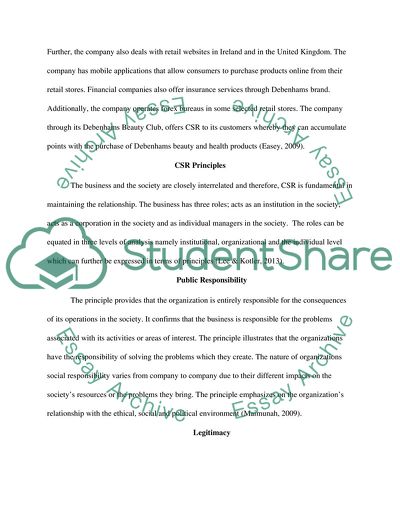Cite this document
(Ethics, Corporate Social Responsibility, and Sustainability Principles Essay, n.d.)
Ethics, Corporate Social Responsibility, and Sustainability Principles Essay. Retrieved from https://studentshare.org/marketing/1866008-ethics-corporate-social-responsibility-and-sustainability-applied-to-the-policies-and-practices-of-the-named-retailer-debenhams-in-their-management-of-customer-communication-image-and-store-design
Ethics, Corporate Social Responsibility, and Sustainability Principles Essay. Retrieved from https://studentshare.org/marketing/1866008-ethics-corporate-social-responsibility-and-sustainability-applied-to-the-policies-and-practices-of-the-named-retailer-debenhams-in-their-management-of-customer-communication-image-and-store-design
(Ethics, Corporate Social Responsibility, and Sustainability Principles Essay)
Ethics, Corporate Social Responsibility, and Sustainability Principles Essay. https://studentshare.org/marketing/1866008-ethics-corporate-social-responsibility-and-sustainability-applied-to-the-policies-and-practices-of-the-named-retailer-debenhams-in-their-management-of-customer-communication-image-and-store-design.
Ethics, Corporate Social Responsibility, and Sustainability Principles Essay. https://studentshare.org/marketing/1866008-ethics-corporate-social-responsibility-and-sustainability-applied-to-the-policies-and-practices-of-the-named-retailer-debenhams-in-their-management-of-customer-communication-image-and-store-design.
“Ethics, Corporate Social Responsibility, and Sustainability Principles Essay”, n.d. https://studentshare.org/marketing/1866008-ethics-corporate-social-responsibility-and-sustainability-applied-to-the-policies-and-practices-of-the-named-retailer-debenhams-in-their-management-of-customer-communication-image-and-store-design.


